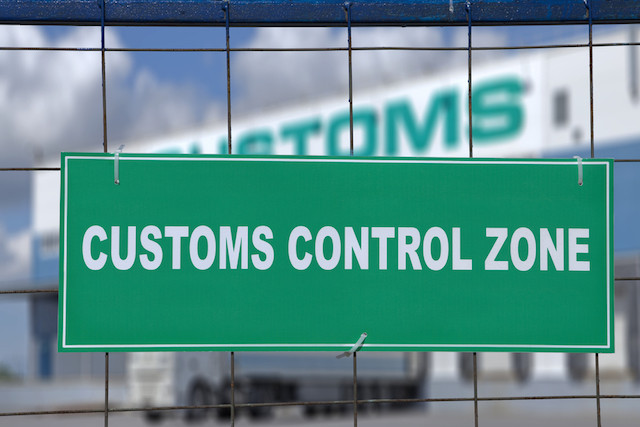Materials manufacturer Morganite, which exports 20% of its production to the UK, fully expects to be impacted by a no-deal. “Brexit will bring more concerns than opportunities,” financial controller Emmanuel Frieres said during a panel talk at the Chamber of Commerce on Friday 8 February. Morganite’s continency plan has so far included negotiating with customers to take their orders before the Brexit deadline. But that does not solve all their problems. “Our main fears are the ways and means of exporting. Will we have to have export licences for all of our products and will the present transfer licences need to be converted? For us it presents quite a lot of work and costs incurred.”
For cleaning and care product manufacturers Probiotic Group Luxembourg the concerns centre mainly around the supply of their recycled bottles and plastic. Although they have already found an alternative supplier if they need to switch, there is also concern about meeting delivery schedules and incurring taxes through exporting to what will essentially be a third country from 30 March. Then there is the uncertainty the safety requirements that the UK will impose. “We comply with European standards […] We don’t know if things will be different in the UK, if we will have to adapt, change products or labels,” business development director Martin Schoonbroodt said. The firm is considering opening operations in the UK to manage these issues in the long-term. But it doesn’t help in the short-term.
The financial director of transport and haulage firm Arthur Welter, Ben Frin, painted a bleak picture for the gathered audience. “If you were just to check one tenth of the lorries crossing the borders, the consequences would be 30 kilometres of tailbacks to the border. Let’s imagine the Channel Tunnel trains being stacked up,” he said.
Frin said it was not a question of giving up the UK as a destination because customers ask for it. But, he still has questions concerning lorry permits. Ordinarily, when entering a non-EU country, lorries must have a CEMT cross-border permit. His company has just one for an entire fleet 800 vehicles. He said it remained to be seen how many permits the firm will need and how they will be allocated in future by country.
One silver lining Frin observed was the fact that the demand for customs clearance services would bring a boost to his firm, which is specialised in this area. However, as he pointed out, the part of turnover made up of customs clearance compared to the overall turnover is small so the risks largely outweigh the opportunities,” he said.
Things were a little more positive for energy efficiency firm Hopes Luxembourg, which has prepared for no-deal by seeking alternative component manufacturers outside of the UK, where most of its customers are based. And they have found a solution for data management: “We’ve a server in Luxembourg for the EU and a server in the UK for UK data management.”
The resounding message of all speakers at Friday’s event was to urge companies to make preparations for their operations in the event of what is likely to be a no-deal Brexit.
As foreign affairs minister Jean Asselborn said: “I don’t know what’s going to happen on 29 March. But there’s so much at stake in the EU and for the UK. We’ve really got to find a conclusion, which isn’t destructive but positive.”
At the end of January, the Luxembourg Chamber of Commerce launched a helpline for companies which may have questions related to how brexit will impact their operations. The line can be reached by emailing [email protected] or by calling +352 42 39 39 372.
